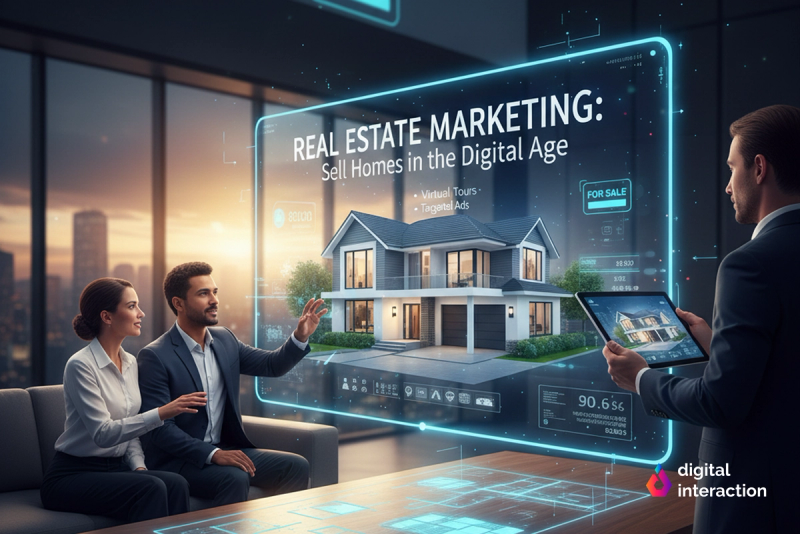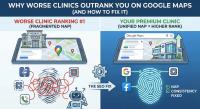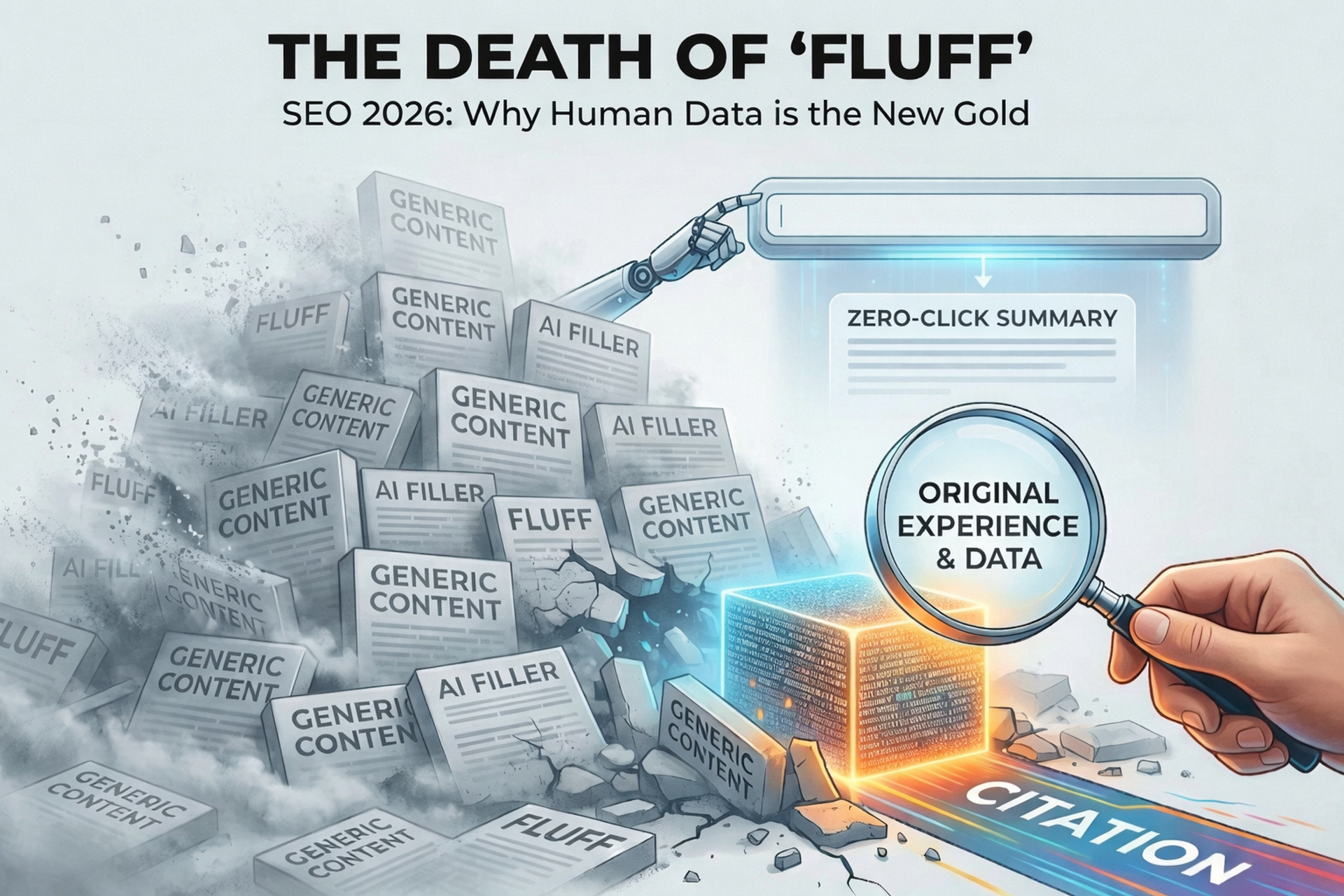Key Takeaways
- Online Presence is Essential: Today's homebuyers start their journey online, so real estate professionals must have a strong digital presence with high-quality content and engaging visuals.
- Focus on Local SEO: Since real estate is location-based, optimizing for local search is crucial. Consistent contact information and content about local communities help you get found by clients in your area.
- Invest in Immersive Visuals: Static photos are no longer enough. To stand out, you need to use virtual tours, 360-degree photos, and drone footage to allow potential buyers to explore properties from anywhere, saving time and effort.
- Leverage Data and Personalization: Use data from online platforms to understand what clients want. Personalizing communication and property alerts based on their specific interests makes them feel valued and increases your chances of a sale.
Integrate New Technologies: Staying ahead requires embracing new tools like augmented reality (AR) to let buyers visualize spaces and smart home integrations that appeal to tech-savvy clients.
The way people search for homes has been evolving for years. What once started with a drive through neighbourhoods and flipping through classified ads now begins online with virtual tours, interactive maps and personalised email alerts. Real estate is a hyper‑competitive industry where first impressions count—often before a prospective buyer ever speaks to an agent. If you work in real estate, understanding the latest digital marketing techniques isn’t optional; it’s essential.
Understanding Today’s Homebuyer
Modern homebuyers start their journey on search engines, social media and property portals. They expect to see high‑quality photos, videos and accurate descriptions. Many buyers are also mobile‑first; they browse listings on their phones, check maps for commute times and read reviews about neighbourhoods. To meet these expectations, real estate professionals need a digital presence that’s informative, engaging and easy to access.
Local SEO: Getting Found in Your Area
Because real estate is location‑driven, local SEO is critical. Make sure your agency’s name, address and phone number (NAP) are consistent across all platforms—Google Business Profile, directories and your website. Optimise your website for location‑based keywords like “homes for sale in [city]” or “[neighbourhood] real estate agent.” Create content around community highlights, school information and market trends. Reviews also matter; encourage satisfied clients to leave ratings on Google and property portals to build trust with future clients.
Immersive Visuals: Photos, Video & Virtual Tours
In 2025, buyers expect more than static pictures. 360‑degree photos, drone footage and virtual reality tours allow them to explore properties from anywhere. High‑resolution photography still matters—bright, well‑staged images attract attention and convey professionalism. Short videos can showcase a property’s flow, while live virtual walkthroughs let buyers ask questions in real time. These immersive experiences save time for both agents and clients by filtering out mismatches before physical showings.
Social Media & Targeted Advertising
Social platforms aren’t just for browsing photos of friends’ vacations; they’re powerful marketing tools. Use Facebook and Instagram to run targeted ads based on location, demographics and interests. Highlight your most attractive listings with carousel ads, videos or Stories. LinkedIn can be effective for reaching investors or commercial buyers. Don’t forget emerging platforms—TikTok’s dynamic, short‑form videos have become popular for showcasing unique properties and behind‑the‑scenes glimpses of renovations.
Content Marketing & Email Nurturing
Thoughtful content builds trust and demonstrates your expertise. Write blog posts about home‑buying tips, market forecasts, financing options and DIY home improvements. Create downloadable guides (e.g., “How to prepare your home for sale”) in exchange for email addresses. Once you capture leads, nurture them with automated email sequences that provide valuable insights, property alerts and open house invitations. Segment your email list based on buyer intent—first‑time buyers have different needs than investors or downsizers.
Leveraging Data & Personalisation
Data isn’t just for tech companies. Real estate platforms collect information on user behavior—properties viewed, areas saved, price ranges and amenities searched. Use these insights to personalise your communications. If a lead frequently looks at homes with large backyards, send them similar listings. If someone consistently searches a specific neighbourhood, keep them informed about new properties hitting the market. Personalisation makes leads feel understood and increases the chances they’ll choose you when it’s time to buy or sell.
Trust & Social Proof
Buying a home is one of the biggest financial decisions people make. Establish trust by highlighting testimonials, case studies and client success stories on your website and social channels. Offer virtual seminars or Q&A sessions with mortgage brokers, inspectors and attorneys to provide value and demonstrate your network of professionals. Transparency about fees and processes also builds credibility.
Emerging Technologies: AR & Smart Home Integration
Augmented reality (AR) apps let buyers visualise how a room would look with different furniture, finishes or layouts. Smart home integrations can showcase features like automated lighting, security systems and energy‑efficient appliances. Highlighting these technologies appeals to tech‑savvy buyers and differentiates your listings. As these tools become more common, expect them to be standard in property marketing.
Final Thoughts
Real estate marketing in 2025 blends technology, local expertise and human connection. By leveraging local SEO, immersive visuals, targeted ads and personalised communications, you can reach the right buyers and provide a seamless experience from discovery to closing. Embrace new technologies like virtual tours and AR to stand out in a crowded marketplace, and always keep your customers’ needs at the centre of your strategy.
Interested in upgrading your digital presence? Our team specialises in building high‑performing websites and data‑driven campaigns. Learn more about our Web Development service and how we can help you showcase your properties to the right audience.









